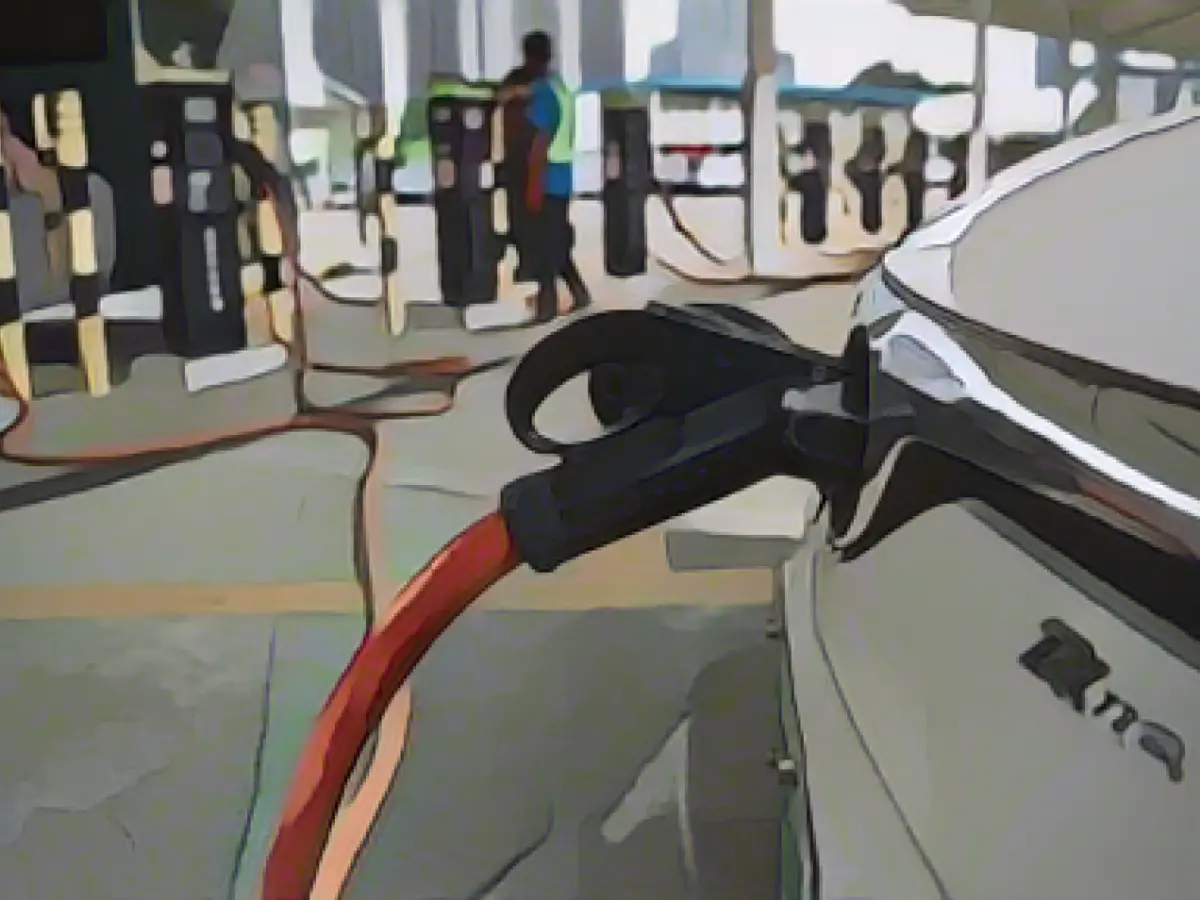Decision by Habeck's ministry to end e-car bonus angers SPD
The ministry announced the end of the funding on Saturday. The SPD parliamentary group deputies criticized this as being too hasty. "Citizens expect political decision-makers to provide transitional periods that are realistic," they explained. "Most people have to calculate very carefully how they can afford to buy a new car and have certainly factored in the premium."
In view of the austerity constraints in the 2024 budget, the coalition leaders had agreed to phase out the e-car subsidy program. The Federal Ministry of Economics then declared that the funding would end at the end of Sunday.
However, subsidies that had already been promised would not be affected by the end of the subsidy and would be paid out. Applications received up to and including December 17, 2023 will be processed in the order in which they are received and - provided the eligibility requirements are met - approved, the ministry explained.
Since the beginning of 2023, the state subsidy, the so-called environmental bonus, had amounted to 4500 euros for a net list price of the basic car model of 40,000 euros and 3000 euros for a net list price above 40,000 euros to 65,000 euros. The German government wanted to use the subsidy to support its goal of putting a total of 15 million fully electric cars on the roads by 2030.
Read also:
- This will change in December
- German activists speak out in Dubai on suffering in Israel and the Gaza Strip
- Despite UN vote: fighting between Israel and Hamas in the Gaza Strip continues
- Nuclear fusion - hype or solution to energy problems?
- Robert Habeck, the Federal Minister for Economics and Climate Protection, faced displeasure from the SPD after announcing the end of the e-car bonus.
- Matthias Miersch, a member of the SPD parliamentary group, expressed his annoyment over the decision to end the e-car bonus.
- The SPD parliamentary group deputies believed that the decision to end the e-car bonus was hasty, as it did not provide sufficient transition time for citizens.
- Detlef Müller, the State Secretary at the Federal Ministry of Economics, defended the decision to end the e-car bonus, stating that it was necessary due to budgetary constraints.
- Habeck's ministry had promised subsidies to encourage the purchase of electric cars, but the decision to end the e-car bonus did not affect these subsidies.
- The e-car subsidy program had been in place since the beginning of 2023, providing a 4500 euro bonus for cars with a net list price of 40,000 euros and a 3000 euro bonus for cars with a net list price above 40,000 euros.
- The SPD argued that citizens need time to plan and save for the purchase of a new car, especially considering the subsidies that were promised.
- The decision to end the e-car bonus was made despite the German government's goal of putting 15 million fully electric cars on the roads by 2030.
- The end of the e-car bonus was a controversial topic, with many car manufacturers and environmental advocates expressing their concerns about the impact of the decision on the electric car market in Germany.
Source: www.stern.de







